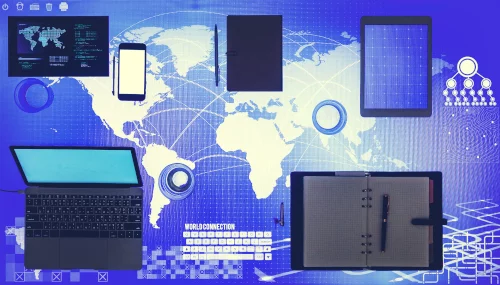In an increasingly connected world, digital entertainment has emerged as a dominant force, reshaping how we consume content, engage with others, and spend our leisure time. From streaming services to immersive gaming experiences, digital entertainment offers endless opportunities for fun, education, and social interaction—all accessible from the comfort of our homes. Here’s an in-depth look at the rise of digital entertainment and how it’s transforming our lives.
The Evolution of Entertainment
Traditionally, entertainment was confined to physical spaces like cinemas, theatres, and arcades. With the advent of the internet, the landscape began to shift dramatically. Early platforms like YouTube and iTunes paved the way for digital media consumption, and today, services like Netflix, Spotify, and Twitch have become household staples.
The evolution of technology, including high-speed internet, mobile devices, and cloud computing, has made entertainment more accessible and tailored to individual preferences. No longer limited by time or location, audiences can now engage with content whenever and wherever they choose, creating a personalised entertainment experience.
1. Streaming Services
Streaming platforms like Netflix, Disney+, and Amazon Prime Video have revolutionised the way we watch movies and TV shows. These services offer vast libraries of content on demand, eliminating the need for physical media or scheduled broadcasts.
Similarly, music streaming services like Spotify and Apple Music have replaced CDs and MP3 downloads, giving users access to millions of songs and curated playlists at their fingertips. Podcasts have also surged in popularity, offering an educational and entertaining alternative to traditional radio.
2. Gaming and Interactive Experiences
Gaming has become one of the fastest-growing segments of digital entertainment. Platforms like Steam, PlayStation Network, and Xbox Live enable players to access a wide variety of games, from casual puzzles to immersive open-world adventures.
Online and Mobile Gaming:
Mobile gaming has seen explosive growth, with titles like Candy Crush, Fortnite, and PUBG Mobile attracting millions of players worldwide. The rise of multiplayer online games and esports has added a social and competitive dimension, connecting players across the globe.
Virtual and Augmented Reality (VR/AR):
VR and AR technologies are pushing the boundaries of gaming and entertainment. Devices like the Oculus Quest and AR apps create fully immersive experiences, allowing users to explore virtual worlds or overlay digital elements onto their real surroundings.
3. Social Media and Content Creation
Social media platforms like TikTok, Instagram, and YouTube have transformed how we consume and create entertainment. These platforms empower individuals to produce their own content, from short videos and live streams to music and tutorials, reaching global audiences with minimal resources.
Influencers and creators have become key figures in the digital entertainment landscape, shaping trends and fostering community engagement. This shift has democratised entertainment, allowing anyone with a smartphone to participate.
4. Online Gambling and Virtual Casinos
Digital entertainment isn’t limited to traditional content; online gambling has become a significant part of the industry. Platforms like Goldrush Casino offer an authentic online and offline casino experience via their bingo branches with games like poker, blackjack, and roulette, as well as themed slots and live dealer options. These platforms provide the excitement of gambling without the need to visit a physical casino, making it more accessible to a wider audience.
The Impact of Digital Entertainment on Our Lives
1. Increased Accessibility
Digital entertainment has broken down geographical barriers, enabling people from all walks of life to access content. Whether it’s streaming a movie, joining a multiplayer game, or attending a virtual concert, the possibilities are endless.
2. Enhanced Social Connectivity
Platforms like Twitch, Discord, and social media have turned entertainment into a shared experience. Gamers can team up with friends, viewers can chat during live streams, and fans can interact with creators in real-time, fostering a sense of community.
3. Education and Skill Development
Digital entertainment isn’t just about fun—it’s also a powerful educational tool. Platforms like MasterClass, YouTube, and Duolingo provide engaging ways to learn new skills, from cooking and painting to coding and foreign languages. Interactive games can also improve cognitive skills, problem-solving, and coordination.
4. Customised Experiences
With the help of algorithms and AI, digital platforms offer personalised recommendations tailored to individual preferences. This ensures users spend less time searching for content and more time enjoying it, creating a highly curated experience.
The Challenges of Digital Entertainment
While the rise of digital entertainment has brought many benefits, it also comes with challenges.
- Screen Time and Health Concerns:
Excessive use of digital devices can lead to issues like eye strain, disrupted sleep, and reduced physical activity. - Data Privacy and Security:
As users share personal information online, concerns about data security and privacy have grown. - Addictive Behaviour:
The immersive nature of digital entertainment, particularly in gaming and social media, can lead to addictive behaviours for some individuals. - Digital Divide:
Not everyone has equal access to high-speed internet and digital devices, creating a disparity in who can fully enjoy digital entertainment.
A New Era of Entertainment
The rise of digital entertainment has undeniably transformed how we live, learn, and connect with others. By making entertainment more accessible, interactive, and personalised, it has opened up new opportunities for fun, creativity, and engagement.
As the industry continues to evolve, we can expect even more innovative ways to experience digital entertainment, from advancements in VR to AI-driven content creation. While it’s important to navigate the challenges responsibly, there’s no doubt that digital entertainment has become an integral part of modern life, changing how we find joy and meaning in our leisure time.
So whether you’re streaming your favourite series, gaming with friends, or exploring virtual worlds, the digital age offers something for everyone.
Zanele Mokoena
When she’s not researching the latest innovations in online entertainment, Zanele enjoys testing out new gaming platforms, exploring South Africa’s growing digital economy, and sharing her expertise on how technology is redefining modern entertainment. Her goal? To empower readers with knowledge and keep them informed about the exciting future of digital entertainment.



